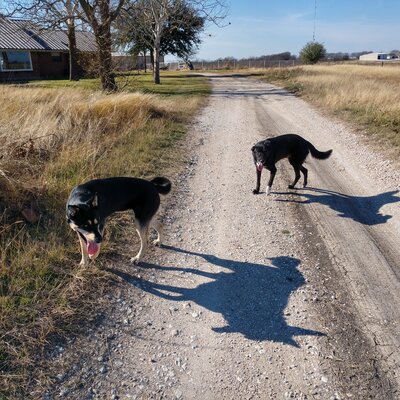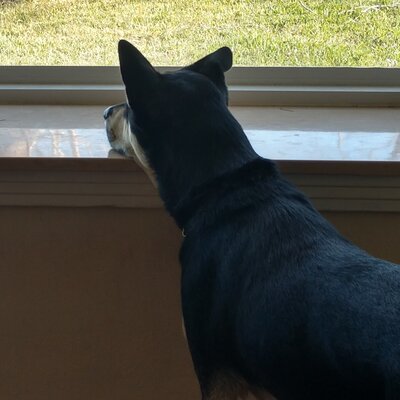Lemon-Drop
Let Your Light Shine ~ Matthew 5:16 🤍✝️
Hi there! 
So, originally, I was hoping to get a Golden Retriever or some other large breed dog from a breeder as a puppy.
I realized that it's a little out of budget, and I'm moving out soon, so it wouldn't be the best fit.
This is a little bit of our current situation:
My family and I have decided that fostering seems like a good compromise because:
So, a couple of my questions are:
I'm excited to go on this journey, and hopefully some of you can help answer my questions!
I know this is a chicken forum, but it seems like it's one of the most active, so hoping some people can help!
Let me know if there's any more information I can provide.

So, originally, I was hoping to get a Golden Retriever or some other large breed dog from a breeder as a puppy.
I realized that it's a little out of budget, and I'm moving out soon, so it wouldn't be the best fit.
This is a little bit of our current situation:
- We will be able to start fostering in the next 6 months or so (not immediately, though)
- We have two dogs that are getting on in their age, a miniature poodle and a toy poodle
- We have other animals (no cats, though) including chickens, parakeets, fish, a hedgehog, and an axolotl
- We have a fenced dog run that connects to our deck, but no current fully fenced yard
- We can walk dog's multiple times a day for exercise, or go to a dog park if compatible
- We live in Western Washington
- I'm moving out in the next 4-5 years
- We have plenty of space in our home
- FYI, my family has decided that for at least the first couple dogs, we don't want to foster ones with fighting backgrounds
- We want to foster a larger dog
My family and I have decided that fostering seems like a good compromise because:
- We can meet many new dogs, so when I'm living on my own, I can think back and decide what qualities were my favorite
- We can help care for animals that need homes - to me this is one of my values - freeing up space for more dogs to be taken in
- It's a much shorter commitment than adopting a puppy and keeping it for life - 15 years vs a couple months or weeks
- Helping makes me really happy. Being around dogs curbs my social anxiety and depression
- It's much more affordable. While we're happy to spend what's necessary, often vet care, food, and supplies are provided by the shelter
- I'm guessing that dogs that go to foster homes are happier than ones in shelters
- Probably a bajillion other reasons I can't think of right now.
So, a couple of my questions are:
- Does this seem like a good idea?
- What are some recommended organizations?
- What breeds should we avoid?
- What is it like?
- If you have fostered, did you enjoy it, and would you recommend it?
- Any concerns or things to be aware of?
- Tips?
- What is involved?
I'm excited to go on this journey, and hopefully some of you can help answer my questions!
I know this is a chicken forum, but it seems like it's one of the most active, so hoping some people can help!
Let me know if there's any more information I can provide.







